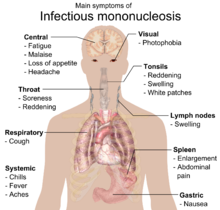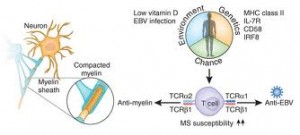There are limited numbers of antiviral drugs for herpes, but certainly now research showed that spironolactone helps against herpes infections. Spironolactone is an older heart medicine that helps with cardiac failure, but it is also used in unwanted hair growth in women with a hormone disbalance, called hirsutism.
Dr. Swaminathan and colleagues have shown in new research from the University of Utah School of Medicine, Salt Lake City, UT that spironolactone blocks the multiplication of herpes viruses.
Common herpesvirus infections
Although there are 100’s of different herpes virus strains, you will recognize some of the following names.
Herpes, type 1 (HSV-1)
HSV-1 causes cold sores on the lips or inside the mouth.
Herpes, type 2 (HSV-2)
HSV-2 is the cause of genital herpes.
Herpes, type 3 (HSV-3)
HSV-3 causes both chickenpox and shingles (herpes zoster). When the immune system is immature, it presents as chickenpox (mostly in children). But when there is partial immunity from a chickenpox childhood infection, shingles can present in an aging person as a localized shingle infection (medically called “herpes zoster”). An interesting vaccination study showed that vaccination against varicella caused a suppression of chronic HSV-1 so that there were no more cold sores compared to the non-vaccinated group that did.
Herpes, type 4 (HSV-4)
You may know HSV-4 as the Epstein-Barr virus. It is the cause of infectious mononucleosis. Other names for this disease are glandular fever or “kissing disease”.
Treatments for herpes infections
The typical antiviral treatments for HSV-1 and HSV-2 are acyclovir (Zovirax), famciclovir (Famvir), and valacyclovir (Valtrex). As a matter of fact, all these drugs belong to the same pharmacological class of drugs. The same drugs work for chickenpox and shingles/herpes zoster (HSV-3).
In a 2013 publication researchers gave acyclovir (Zovirax) to patients who had been hospitalized with infectious mononucleosis.
They had a shorter duration of hospitalization and fever than a control group not treated with acyclovir. The authors did propose that patients with mononucleosis should receive acyclovir.
Drug-resistant herpes strains
One problem that has surfaced is that herpes drug resistant herpes strains seem to evolve, which are resistant to all of the newer anti-herpes drugs as well. The reason for this is that current anti-herpes drugs work by inhibiting the ability of the virus to replicate DNA, thus stopping its proliferation. When the virus learns to overcome that barrier we call this resistance and this will also affect all of the drugs that utilize the same mechanism of action.
The team from the University of Utah screened several drugs and came upon spironolactone, which is a standard medicine for treating heart failure. Dr. Swaminathan and his team found that spironolactone was also able to stop the viral proliferation, however the drug blocked the virus through a different mechanism. Spironolactone inhibited the action of a protein, the SM protein.
This different mechanism of treating herpes virus infections has opened a new door to further research for newer drugs. Hopefully these new drugs will only have the anti-herpes virus effect, but not the anti-heart failure effect. Dr. Swaminathan is confident that his team will be able to separate these two actions and then come up with a new group of anti-virus drugs.
Spironolactone helps against herpes infections, has few side-effects
Spironolactone has been on the market for over 50 years and has a very good low side effect profile. It is useful for people with heart failure to reduce the retained fluid that can accumulate around the heart or in the lungs. This allows the patient to breathe easier and have more energy. Spironolactone also helps with fluid accumulation in patients who have cirrhosis or have nephrotic syndrome, a kidney disease.
In a completely different set of patients spironolactone can help women who produce too much male hormone in their ovaries. This normalizes the hormones and help them lose the awkward, unwanted facial hair growth.
Some generalized side effects are: mild nausea, vomiting or diarrhea. Breast swelling or tenderness can develop. Dizziness, headache and mild drowsiness can occur. Some people develop leg cramps. Males can experience impotence and difficulties having an erection.
Conclusion
It is not often that an existing drug that has been well researched in the past finds a new application in a completely different area than originally developed for. This is the case for spironolactone, which is effective as an anti-herpetic drug. Further research will likely be able to separate the anti-viral effect of spironolactone from the anti-heart failure effect. Dr. Swaminathan and his team did not think that this was too difficult a problem. In the meantime physicians can use spironolactone for severe herpetic infections when the other drugs do not help. These may be cases of drug resistance.
Overall the detection of an anti-herpetic effect of spironolactone has been an important step forward. This is also true with respect to treating the whole group of herpetic diseases.








